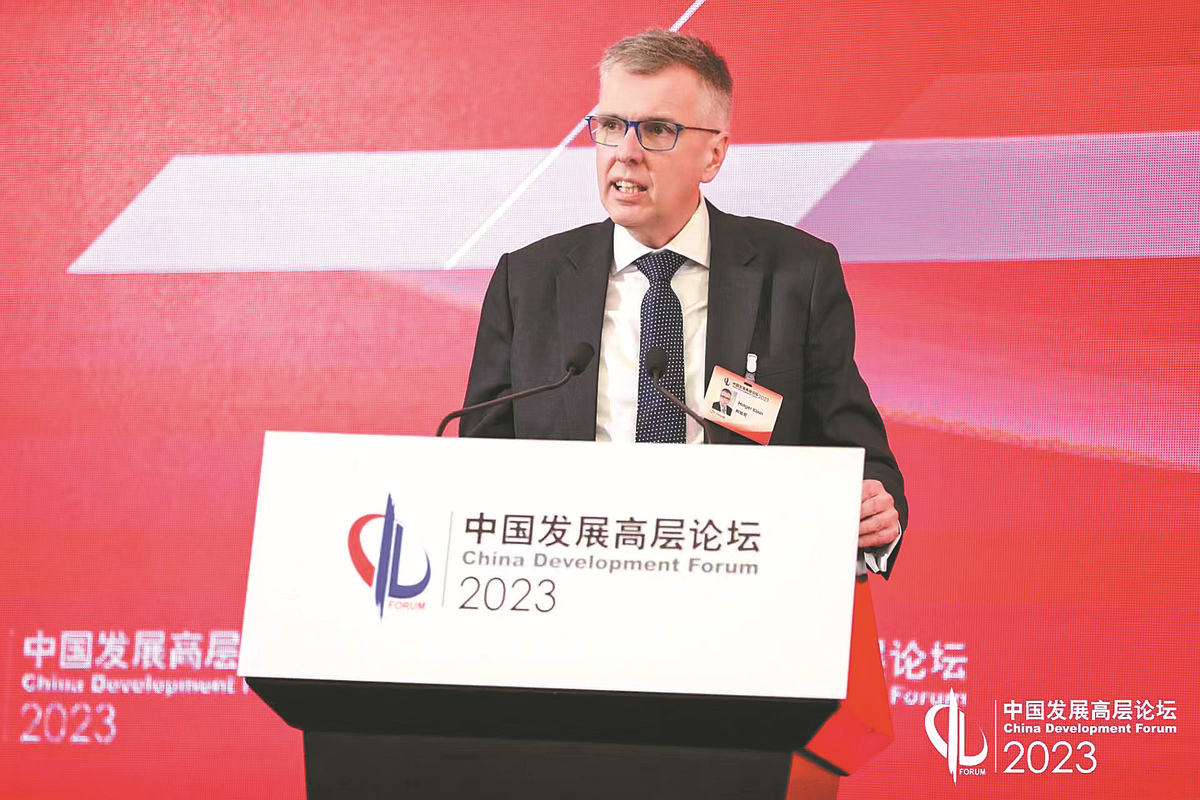ZF Group commits to invest in China's automotive supply chain

As a global tech company and one of the top three auto parts suppliers in the world, ZF is committed to the Chinese market with continued investment. It aims to be at the forefront of cutting-edge technologies in the world's largest and most dynamic vehicle market, top executives said at the China Development Forum held in Beijing from Mar 25 to 27.
Amid various challenges faced by the automotive industry in recent years such as COVID-19, chip shortages and rising energy and raw material prices, ZF Group remains committed to investing in China and strengthening its efforts to develop the local supply chain, said Holger Klein, chairman and CEO of ZF Group.
Klein, who has lived in Shanghai for the past three years along with ZF's Asia-Pacific team, said that the main reason behind the latest investment is that ZF has found Chinese vehicle manufacturers have higher requirements for technology and the iteration speed of products.
"It requires ZF Group to get closer to Chinese customers and assist them in dealing with the increasingly fierce market competition," he said.
He added that China has now become a global innovation hub for ZF and an important market to launch the company's latest products.
The 800V high-voltage electric drive system used in the Eletre SUV made by Lotus, a sports car marque owned by China's Geely, and the intelligent 4D radar used in the R brand of SAIC are the world's first mass-produced projects developed by ZF, manifesting the Chinese market's thirst for technology and speed.
Stephan von Schuckmann, member of the board of management of ZF Group, said that the electric drive market in China has the fiercest competition worldwide.
"Once launched in China, the products will be brought to other markets, underlining the importance of the Chinese market to us," said Schuckmann, who also in charge of ZF's electrified powertrain technology division and group-wide materials management.
In 2022, ZF opened a new electric drive factory in Shenyang in Northeast China's Liaoning province to complement European luxury auto brands and established another factory in Hangzhou, Zhejiang province, for Lotus and other Chinese carmakers, according to Schuckmann.
ZF also launched new production and development projects in Jinan and Rizhao in Shandong province; Guangzhou in Guangdong province; Anting in Shanghai and Zhangjiagang in Jiangsu province in 2022 to strengthen localization.
Since entering the Chinese market in 1981, ZF has gone through the stages of "Sold in China", "Made in China" and "Developed in China", and is on its way to "Led by China", said the company.
Over the past decade, ZF's employees in China have grown from less than 6,000 to more than 20,000. The group has nearly 50 production locations, four R&D centers and 240 after-sales service outlets across more than 20 cities in China.
Renee Wang, executive vice-president of ZF Group, president of ZF China and Operation Asia-Pacific, said: "ZF will seize opportunities during the transformation of China's automotive industry, continue to enhance its core technology and the competitive advantage of its local independent R&D through extensive collaboration with original equipment manufacturer customers and technology partners.
"We are playing an increasingly active role in an open ecosystem," she said.
According to Wang, ZF China achieved sales of 7.7 billion euros ($8.3 billion) in 2022, an increase of 10 percent year-on-year. Sales in the Asia-Pacific region, with the majority coming from China, accounted for around 25 percent of the group's global sales in 2022.The figure is expected to increase to 30 percent by 2030.

